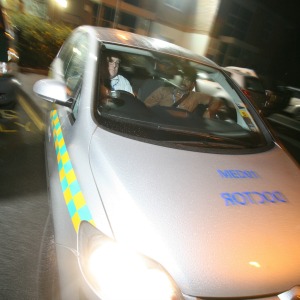GPs abandoning out of hours over ‘state of disarray’

Increasing numbers of GPs across Wales are refusing to do out of hours shifts because of unsafe working and poor management.
Pulse has learnt of several experienced out of hours doctors planning to walk away because ‘goodwill has been destroyed’.
Rota gaps are common, say GPs who are now getting ‘daily texts’ asking to cover shifts at short notice from health boards desperate for staff.
One GP, who has worked in out of hours since 2004 and who wanted to remain anonymous, told Pulse he has had enough and know of several colleagues who are also planning to quit.
He told Pulse there were so many problems it ‘was hard to know where to start’ but said the service was ‘in a state of disarray’.
‘There’s issues with management, there’s issues with morale and there’s the recruitment problem going on in the background,’ he added.
He says the final nail in the coffin for already demoralised GPs, was the imposition of employment rule changes after the IR35 tax changes.
‘The way they have implemented that is appalling, there’s no contract, they can’t get a basic pay slip right and now they’re asking for numbered invoices which would imply you’re actually self employed,’ the GP said.
Dr Jeremy Honeybun, a GP partner in North Wales who also works several out of hours shifts in a month says he stopped doing a weekday evening shift he had done for many years because it was no longer financially viable.
He said after the tax rule changes, when doctors working out of hours were no longer classed as self employed, they were essentially on zero hour contracts with no guaranteed hours and no benefits.
‘There is a lot of unhappiness about it, especially the way it has been handled.’
Dr Steven Epstein, a salaried GP who also does locum shifts, said he signed up to do out of hours in Gwent in January but he still hasn’t got an ID badge to get into buildings because health board staff are ‘fighting fires trying to fill shifts’.
‘Saturday there was no GP available and they were depending on advanced nurse practitioners. It’s happening more and more.’
He added: ‘My first shift I had 45 people on triage. People are waiting for 8-hour call backs.’
Dr Epstein who also works for out of hours in Powys, says one reason for GPs walking away in North Wales has been expectations for GPs to sign scripts for patients seen by other health professionals including paramedics.
‘A lot of doctors pulled out and stopped working so now they’re really struggling in North Wales.’
Dr Phil Cox, who does out of hours shifts for Abertawe Bro Morgannwg University Health Board, says his experience has been very positive despite increasing problems with filling rotas.
‘But I have friends in Cardiff who have been told they have to see so many patients or you won’t get paid.’
GPC Wales chair Dr Charlotte Jones said they were hearing more concerns from GPs working in out of hours about unfilled rotas, closure of units at varying times, and their terms and conditions of services.
‘In addition, GPC Wales has been concerned by the approach of health boards, whereby there is blanket application of new IR35 rules to those working through intermediary companies.
‘In some health boards in Wales, blanket rulings are also being applied around taxation status of all OOH doctors, classing them as employees for taxation status only.
‘This approach is inevitably going to impact negatively on the workforce.’
She added they had long highlighted the lack of investment in out of hours.
‘This is unacceptable and has hindered development and sustainability of OOH services.’
She added that the needs of out of hours GPs and services are being considered in each work stream of the GMS contract review.
A spokesperson for Betsi Cadwaladr University Health Board said: ‘While we do not have specific concerns with regard to rotas in any of our areas, we do face similar challenges as elsewhere in Wales and across the UK, and are grateful to our nursing and GP colleagues for their efforts in supplying the best service and care possible.’
Pulse July survey
Take our July 2025 survey to potentially win £1.000 worth of tokens












